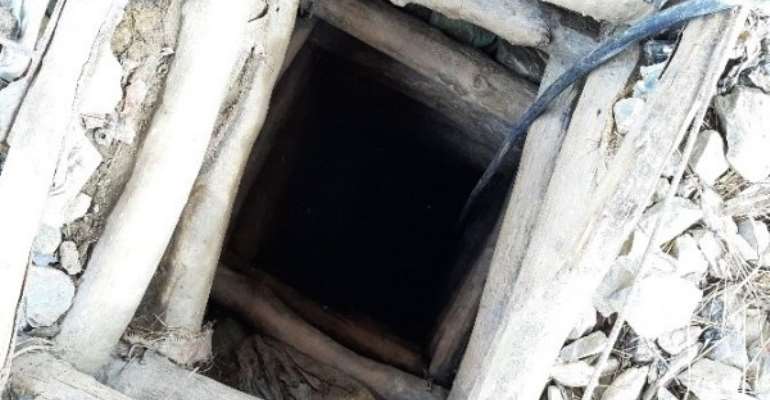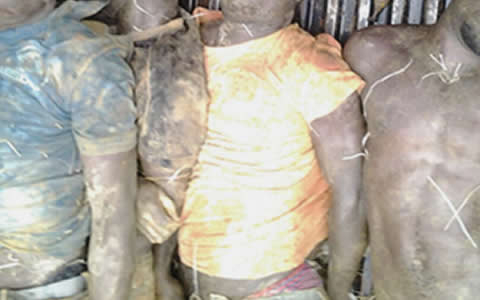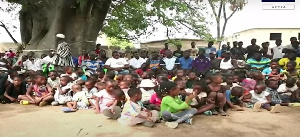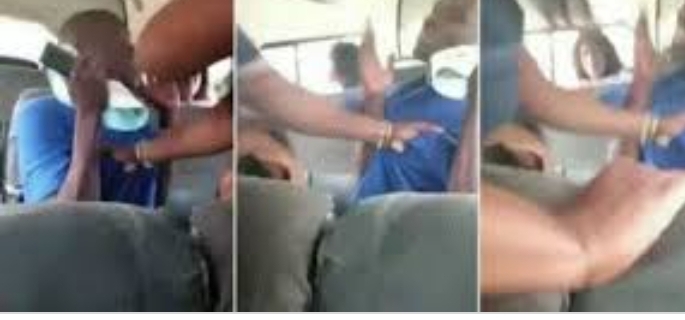Haunted by Beliefs: The plight of disabled children accused of witchcraft in Northern Ghana
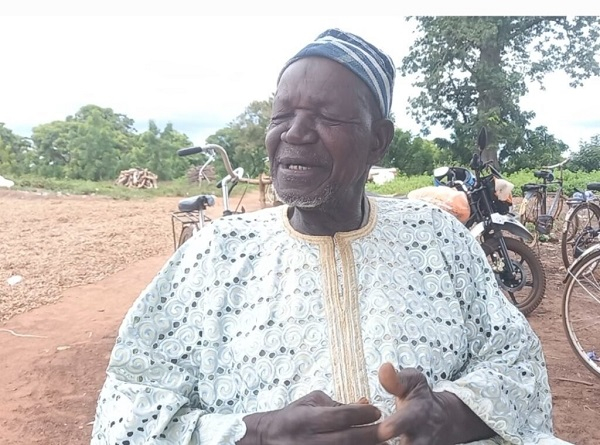
Soale Abdul-Razak, a 21-year-old blind young man from Sang in the Mion District of the Northern Region, narrowly escaped death after being accused of witchcraft following his father’s death five days after his birth.
His blindness, coupled with his epileptic condition, led to the belief that he was a curse.
On the night of their escape, a sympathetic family friend warned Soale’s mother, Illiasu Habida, of a plot to kill him by the chief priest of the community.
With the help of her older children, the family fled to Garinkuka in the Chereponi District for refuge.
Soale’s life has been marred by the stigma attached to his condition.
“Even during Eid celebrations, while others celebrate, I stay home due to my condition because people are shying away from me,” Soale said.
Narrating his harrowing experience in an interview with Rainbow Radio, he said his dreams of becoming a lecturer and a fashion designer were crushed by his blindness and the accompanying stigma.
This tragic pattern extends to other communities as well.
In Makayili, a farming community in the Nanumba North Municipality, children with disabilities, especially those with autism, are often abandoned or killed due to accusations of witchcraft.
Parents like those of eight-year-old Adamu (not real name), who is now in a local children’s home, and Suweiba Fuseini, who narrowly escaped a kidnapping attempt, face unimaginable choices to protect their children.
Little Adamu is now under the care of a local children’s home for safety and healing from autism and alleged witchcraft.
In the case of Suweiba Fuseini (not real name), an autistic child, she escaped murder in October last year when three men allegedly raided their home to capture her over witchcraft accusations.
“It was one of the scariest things I have witnessed in my life. They came to our house and started shouting, ‘Where is that your evil child? Where is that, your evil child? So my husband called the Rev. Father, and they came with the police, so the killers ran upon seeing the police. Now she is safe at the children’s home,” the mother of the victim narrated.
The disturbing experiences of children like Soale Abdul-Razak, Adamu, and Suweiba reveal a grim reality shaped by superstition in many parts of northern Ghana.
According to the Centers for Disease Control (CDC), disability refers to an impairment in a person’s body structure, function, or mental functioning, for example, loss of a limb, loss of vision, or memory loss. An estimated 1.3 billion people, or about 16 percent of the global population, currently experience significant disability.
Similarly, the World Health Organization says disability results from the interaction between individuals with a health condition, such as cerebral palsy, Down syndrome, or depression, and personal and environmental factors, including negative attitudes, inaccessible transportation and public buildings, and limited social support.
For instance, in Northern Ghana, children with disabilities are largely victims of deep-rooted cultural beliefs that exclude them from the mainstream social community and deny them the opportunity to explore their abilities and potential.
This often led to maltreatment and, in some cases, the killing of innocent children in Ghana’s Northern Region, as they are often labelled as witches, river deities, or curses to society and come with bad destinies.
Specifically, in the Makayili community, whenever the farmers record a poor harvest, they attribute it to activities of witchcraft and the anger of the gods, and the most accused of this misfortune are children born with disabilities, especially autism.
This is because autism is seen as unnatural, and any child with autism is a witch and a curse to the community; therefore, to prevent such a child from wreaking more havoc, the baby is abandoned in an ‘evil forest’ or dumped at an anthill to die.
Though Ghana’s Parliament passed the Anti-Witchcraft Law on July 27, 2023, which criminalises the accusation, naming, or labelling of another person as a witch, it has not been assented to by the President.
The Ghana Police Service in the Northern Region said it had over the years received reports of abuses meted out at alleged witches, including some children born with disabilities, but unfortunately they were limited in getting evidence to initiate any arrest.
The Mion District Inspector of the Ghana Police Service, William Ambire, said, “The victims, for fear of stigma and religious beliefs, do not report these cases to the police; we only hear them, and the members of the community don’t open up, making it difficult to arrest or prosecute the perpetrators.”
“Indeed, it is happening, but you will only hear of it many days or weeks after the crime is committed, and nobody will be willing to assist the police in identifying the offenders,” he pointed out.
At the Nazareth Home for God’s Children at Sang in the Mion district, a number of children with various forms of disabilities who have been accused of witchcraft are now seeking refuge there.
“The children are many, and I can tell you that half of the disabled children in this orphanage were abandoned due to witchcraft accusations and were brought here by some good Samaritans, and in some cases, we rescue these children ourselves to ensure that they are not molested or even killed by community members,” said the caretaker of the facility.
Worrying development:
This chief of Sambu, Sambulana Abudulai, expressed worry about the practice, revealing that the cruel act happened on his blind side.
“Since I was enkinned in November last year, I heard about the act just once, but that even happened in a neighbouring community and not Sambu town here,” Sambulana said.
Hajia Lamnatu Adam, the Executive Director of Songtaba, a non-governmental organization focused on children’s and women’s rights in the Northern Region, expressed worry about the situation and said most of these children were maltreated and, in some cases, killed.
“For us at Songtaba, we have rescued most of these children because we get cases of witchcraft accusations almost every day, and I will implore the government and the law enforcement agencies to effectively enforce the anti-witchcraft law to curb this cruel act,” she added.
Superstitions:
However, the Head of the Trauma and Orthopaedic Unit of the Tamale Teaching Hospital, Dr. Alexis Buenam, emphasised that the accusations are mere stereotypes and superstitions without bases; hence, most of these disabilities are curable or can be managed if they get early treatment.
He added that “this is pure ignorance, and in this modern day of high technologies and medicines that make most of these disabilities treatable or manageable, people, especially children, should not be treated like animals.”
According to him, early recognition as well as behavioural educational and family therapies such as psychological counselling, practicing mindfulness, and coping mechanisms could reduce symptoms and support development for children suffering from autism.
In the case of clubfoot disease, where one or both feet of a baby are rotated inward and downward, he explained that a prosthetic method of serial casting that involves careful stretching and manipulation of the foot and holding with a cast can help correct it.
He, therefore, admonished parents to seek early treatment for their children suffering from such conditions instead of attributing them to superstitious beliefs.
Way forward:
While legislative and medical advancements offer hope, changing deep-rooted cultural attitudes is essential for protecting these vulnerable individuals.
There is therefore a need for authorities and all stakeholders to step up efforts to end the cycle of violence and ensure a safer environment for all.
Source: rainbowradioonline.com


